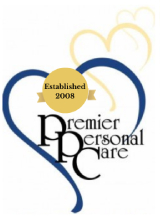Warning Signs Concerning Your Elderly Relative’s Quality Of Life At Home

As your loved one’s age, it’s natural to worry about their well-being and quality of life when they live alone. And it’s unlikely your parents or other elderly relatives will tell you that they need a helping hand. It’s not easy for aging adults to admit they need help for fear of losing their independence. It’s important to regularly monitor your elderly relatives to detect senior health problems that could mean they need help so that you can arrange for quality in-home care.
Detecting Senior Health Problems
Senior health problems may be physical, mental, or emotional, and all indicate that your aging parent(s) may need an extra hand around the house to remain independent. Many signs of trouble go hand-in-hand with activities of daily living, which include bathing, grooming, dressing, eating, transferring from place to place, walking, and continence. When your elderly loved ones struggle to perform routine activities, it’s a good sign that they’d benefit from quality in-home elderly care.
Deteriorating Personal Appearance
Poor personal hygiene is often one of the first signs an elderly relative is experiencing problems. Due to fear of falling in the bathtub, the pain of arthritis in hands, and simply forgetting about daily hygiene, bathing, grooming, and dressing is often more difficult as we age.
A noticeable decline in grooming habits and personal care, including body odor, unkempt hair, ignored oral care, untrimmed nails, and wearing unwashed clothes, could indicate a physical impairment or depression. Lack of hygiene may be compounded by the smell of urine in the home, which may indicate incontinence because it has become hard for them to make it to the bathroom in time.
Unexplained Weight Issues
If you notice your aging parent has suddenly lost weight, there’s a reason for concern. It could be a sign they’re suffering from a poor diet because cooking and/or shopping for food has become too difficult. Some reasons they may have given up cooking include:
- No energy to cook/shop
- Forgetting to eat regularly
- Not enough strength to grip utensils
- Can’t read food package labels or directions
- Fear of starting a fire after forgetting to turn off burners
Unexpected weight loss can also signify that your loved one is sick and doesn’t know it. Ask your elderly parents if they started a new diet to start a conversation about their weight loss. Look for noticeable burns or cuts on their skin that may be signs of problems while cooking.
Check out their refrigerator and cabinets to see if they have fresh food or if their entire food supply is low. On the flip side, your elderly relative could also be experiencing weight gain, which could be health related or from consuming ready-to-eat junk foods to avoid cooking.
Cluttered, Run Down Home
Like an unkempt appearance, a cluttered, unmaintained home could be another visible sign something is wrong, especially if your loved one previously was a meticulous housekeeper. Don’t write off a messy house as laziness; it could be due to senior health problems. Monitor your elderly relative’s home for:
- Spoiled food that doesn’t get thrown away
- Trash piling up
- Ignored spills and stains
- Neglected laundry
- Dirty dishes everywhere
- Extremely cluttered floors
- Filthy bathrooms
- Overall uncleanliness
These can all be indicative of a mobility issue, depression, or physical inability to do household chores. A few hours of help each week could be what they need to get and keep their home in order and improve their quality of life.
We Provide Premier Daily Supportive Care
Signs of senior health problems don’t mean your elderly loved ones must move to assisted living or a nursing home, which they likely want to avoid. If your parents or other aging relatives need assistance to continue living at home, Premier Personal Care in Fairless, Pennsylvania, can help.
Our compassionate, in-home caregivers provide nonmedical, daily supportive care so elderly adults can stay in the comfort of their homes for as long as safely possible. We can help with cooking, cleaning, shopping, activities of daily living, reminders, and companionship so they don’t feel lonely when you can’t be there.
We’re a locally owned home care agency, not a franchise, with fully trained staff, never sub-contractors. Our caregivers are available for in-home services 24/7 and personalize care to ensure every client gets exactly what they need to experience a better, more fulfilling life. Contact us at 215-943-0201 to learn more about our attentive in-home care services today.









Leave a Reply